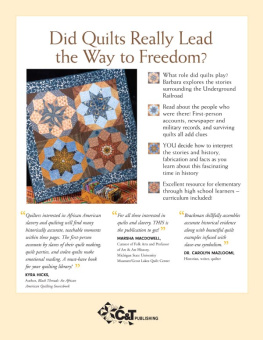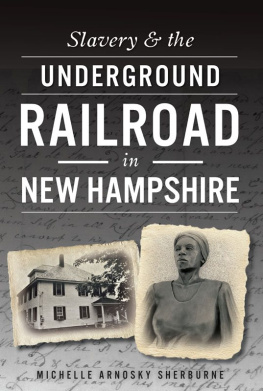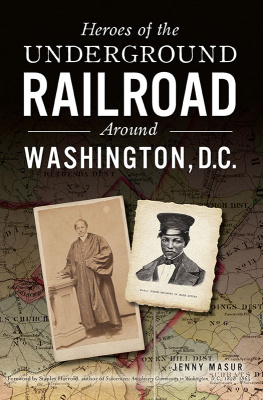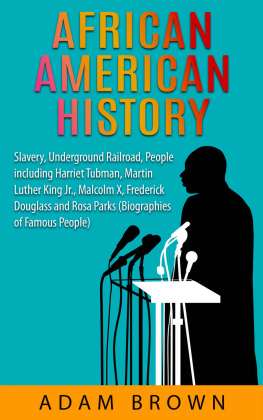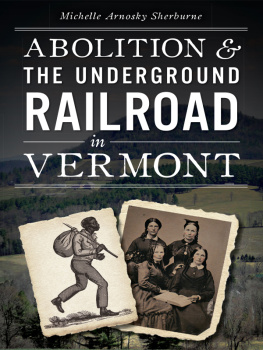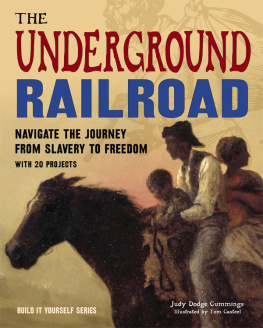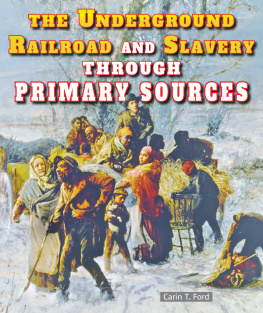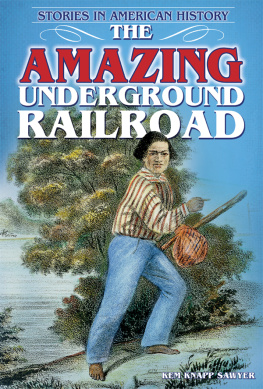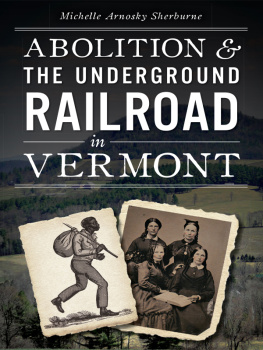John F. Hume - The Abolitionists
Here you can read online John F. Hume - The Abolitionists full text of the book (entire story) in english for free. Download pdf and epub, get meaning, cover and reviews about this ebook. year: 2012, publisher: Andrews UK Limited;Andrews UK;AUK Classics, genre: Detective and thriller. Description of the work, (preface) as well as reviews are available. Best literature library LitArk.com created for fans of good reading and offers a wide selection of genres:
Romance novel
Science fiction
Adventure
Detective
Science
History
Home and family
Prose
Art
Politics
Computer
Non-fiction
Religion
Business
Children
Humor
Choose a favorite category and find really read worthwhile books. Enjoy immersion in the world of imagination, feel the emotions of the characters or learn something new for yourself, make an fascinating discovery.

- Book:The Abolitionists
- Author:
- Publisher:Andrews UK Limited;Andrews UK;AUK Classics
- Genre:
- Year:2012
- Rating:4 / 5
- Favourites:Add to favourites
- Your mark:
- 80
- 1
- 2
- 3
- 4
- 5
The Abolitionists: summary, description and annotation
We offer to read an annotation, description, summary or preface (depends on what the author of the book "The Abolitionists" wrote himself). If you haven't found the necessary information about the book — write in the comments, we will try to find it.
A fascinating and comprehensive look at the history of those men and women that advocated the abolition of African slavery, as well as those that fought the system by, for example, running the Underground Railroad.
The Abolitionists — read online for free the complete book (whole text) full work
Below is the text of the book, divided by pages. System saving the place of the last page read, allows you to conveniently read the book "The Abolitionists" online for free, without having to search again every time where you left off. Put a bookmark, and you can go to the page where you finished reading at any time.
Font size:
Interval:
Bookmark:
THE ABOLITIONISTS
TOGETHER WITH PERSONAL MEMORIES OF THE STRUGGLE FOR HUMAN RIGHTS
1830-1864
BY
JOHN F. HUME
This edited version, including layout, typography, additions to text, cover artwork and other unique factors is copyright 2012 Andrews UK Limited
This book is sold subject to the condition that it shall not, by way of trade or otherwise, be lent, resold, hired out or otherwise circulated without the publishers prior written consent in any form of binding or cover other than that in which it is published, and without a similar condition being imposed on the subsequent purchaser.
FOREWORD
The opening chapter of this work was prepared during the recent presidential campaign. It was the idea of the author that it should appear in one of the leading newspapers or magazines before the election, but maturer reflection brought about a change of purpose. He realized that its publication at that time, might, not altogether unreasonably, be looked upon as a political move having as its object the election or defeat of a particular candidate for office, whereas he had no desire to play the partisan. His sole aim was to vindicate the character of a portion of the citizens of this country - some living, some dead - whom he had always believed to be most deserving of popular esteem, from what he considered the unmerited aspersions of a man who has since come into a position so conspicuous and so influential that his condemnation necessarily carries with it a damaging effect.
Having gone so far as the preparation of the initial chapter, he concluded that proofs of his assumptions and assertions might at certain points be thought desirable, if not necessary, and that he should so prolong his work as to provide them. His first idea at this point, as his years went back beyond the beginning of the Abolitionist movement in this country, and as he had been from early boyhood identified with this movement, was to contribute such information as his recollection of events would supply. In other words, he decided to write a narrative, the matter of which would be reminiscent, with here and there a little history woven in among the strands of memory like a woof in the warp. It has ended in history supplying the warp, and the reminiscence indifferently supplying the woof.
However, the value of the production is, doubtless, greatly enhanced by the change. A string of pearls - dropping the former simile and adopting another - is estimated according to the gems it contains, and not because of the cord that holds it together. The personal experiences and recollections that are here and there interwoven, by themselves would be of little consequence; but they will be found to carry upon them certain historical facts and inferences - some new in themselves and in their connections - which, as the author hopes and believes, are of profitable quality and abounding interest.
In consequence of the change of plan just explained, the scope of the work is materially affected. What was begun as a magazine article, and continued as a brochure, ends in a volume.
J.F.H.
Poughkeepsie, N.Y., July, 1905.
CHAPTER I
THEODORE ROOSEVELT AND THE ABOLITIONISTS
The following is an extract from Theodore Roosevelt's biography of Thomas H. Benton in Houghton, Mifflin, & Co.'s American Statesmen Series, published in 1887:
"Owing to a variety of causes, the Abolitionists have received an immense amount of hysterical praise which they do not deserve, and have been credited with deeds done by other men whom, in reality, they hampered and opposed rather than aided. After 1840, the professed Abolitionists formed a small and comparatively unimportant portion of the forces that were working towards the restriction and ultimate destruction of slavery; and much of what they did was positively harmful to the cause for which they were fighting. Those of their number who considered the Constitution as a league with death and hell, and who, therefore, advocated a dissolution of the Union, acted as rationally as would anti-polygamists nowadays if, to show their disapproval of Mormonism, they should advocate that Utah should be allowed to form a separate nation. The only hope of ultimately suppressing slavery lay in the preservation of the Union, and every Abolitionist who argued or signed a petition for the dissolution was doing as much to perpetuate the evil he complained of, as if he had been a slaveholder. The Liberty party, in running Birney, simply committed a political crime, evil in almost all its consequences. They in no sense paved the way for the Republican party, or helped forward the Anti-Slavery cause, or hurt the existing organizations. Their effect on the Democracy was nil; and all they were able to accomplish with the Whigs was to make them put forward for the ensuing election a slaveholder from Louisiana, with whom they were successful. Such were the remote results of their conduct; the immediate evils they produced have already been alluded to. They bore considerable resemblance - except that after all they really did have a principle to contend for - to the political Prohibitionists of the present day, who go into the third party organization, and are, not even excepting the saloon-keepers themselves, the most efficient allies on whom intemperance and the liquor traffic can count.
"Anti-Slavery men like Giddings, who supported Clay, were doing a thousandfold more effective work for the cause they had at heart than all the voters who supported Birney; or, to speak more accurately, they were doing all they could to advance the cause, while the others were doing all they could to hold it back. Lincoln in 1860 occupied more nearly the ground held by Clay than that held by Birney; and the men who supported the latter in 1844 were the prototypes of those who worked to oppose Lincoln in 1860, and only worked less hard because they had less chance. The ultra Abolitionists discarded expediency, and claimed to act for abstract right on principle, no matter what the results might be; in consequence they accomplished very little, and that as much for harm as for good, until they ate their words, and went counter to their previous course, thereby acknowledging it to be bad, and supported in the Republican party the men and principles they had so fiercely condemned. The Liberty party was not in any sense the precursor of the Republican party, which was based as much on expediency as on abstract right, and was, therefore, able to accomplish good instead of harm. To say that extreme Abolitionists triumphed in Republican success and were causes of it, is as absurd as to call Prohibitionists successful if, after countless efforts totally to prohibit the liquor traffic, and after savage denunciations of those who try to regulate it, they should then turn round and form a comparatively insignificant portion of a victorious high-license party. The men who took a great and effective part in the fight against slavery were the men who remained with their respective parties."
No word of praise or approval has Mr. Roosevelt for the men and women - for representatives of both sexes were active sharers in the work performed - who inaugurated, and for a long period carried forward, the movement that led up to the overthrow of African slavery in this country. He has no encomiums to bestow on those same men and women for the protracted and exhausting labors they performed, the dangers they encountered, the insults they endured, the sacrifices they submitted to, the discouragements they confronted in many ways and forms in prosecuting their arduous undertaking. On the contrary, he has only bitter words of condemnation. In his estimation, and according to his dogmatic utterance, they were criminals - political criminals. His words make it very manifest that, if Mr. Roosevelt had been a voter in 1840, he would not have been an Abolitionist. He would not have been one of that devoted little band of political philanthropists who went out, like David of old, to do battle with one of the giant abuses of the time, and who found in the voter's ballot a missile that they used with deadly effect. On the contrary, he would have enrolled himself among their adversaries and assailants, becoming a member - because it is impossible to think of Theodore Roosevelt as a non-partisan - of one of the leading political parties of the day. There were but two of them - the Whigs and the Democrats. In failing to support one or the other of these parties, and giving their votes and influence to a new one that was founded and constructed on Anti-Slavery lines, the Abolitionists, in Mr. Roosevelt's opinion, "committed a political crime."
Next pageFont size:
Interval:
Bookmark:
Similar books «The Abolitionists»
Look at similar books to The Abolitionists. We have selected literature similar in name and meaning in the hope of providing readers with more options to find new, interesting, not yet read works.
Discussion, reviews of the book The Abolitionists and just readers' own opinions. Leave your comments, write what you think about the work, its meaning or the main characters. Specify what exactly you liked and what you didn't like, and why you think so.

